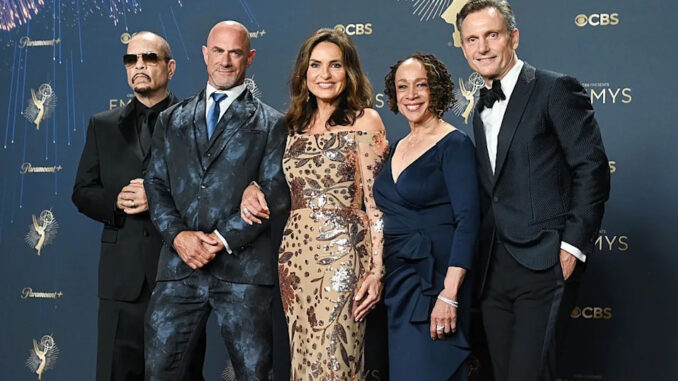
Olivia Benson’s Power Grows: A Quarter-Century of Empathy, Authority, and Unyielding Feminism
For a quarter of a century, in the harsh, unforgiving glow of the precinct’s fluorescents, Olivia Benson has stood as a beacon. From the moment Mariska Hargitay first donned the detective’s badge, a quiet storm was brewing, a subtle yet profound shift in the landscape of televised heroism. Today, after 25 years, the power of Olivia Benson has not merely grown; it has blossomed into an undeniable force, cementing her status as a feminist icon, a truth Mariska Hargitay herself understands with a deeply personal resonance.
In the nascent seasons of Law & Order: SVU, Detective Benson’s power was a nascent thing, often overshadowed by the volcanic intensity of her partner, Elliot Stabler. Her strength then was internal: a remarkable capacity for empathy, an unwavering gaze that sought the truth in the most vulnerable eyes, and a quiet resilience that absorbed the horrors of the job without breaking. She was the one who knelt beside a traumatized child, whose gentle voice could coax a confession from a victim terrified into silence. Her power was in connection, in understanding the nuanced psychological terrain of sexual violence, often in stark contrast to the more visceral, justice-through-anger approach of her male counterparts. Hargitay imbued Benson with a raw, unvarnished humanity, allowing us to witness a woman grappling with the darkness, yet stubbornly choosing to shine a light. This early portrayal laid the foundation for the icon she would become, demonstrating that true power wasn’t about physical dominance, but emotional intelligence and an iron will.
As the years progressed, Benson’s power began to externalize, evolving with each promotion, each leadership challenge. The badge on her chest grew heavier, not just in rank, but in the weight of responsibility. Moving from detective to sergeant, and then to captain, we witnessed a woman learn to command not through brute force, but through earned respect, strategic thinking, and the very empathy that defined her early years. Her office, once a distant concept, became a crucible where difficult decisions were forged, where the complexities of the justice system – and its often-flawed human components – were navigated with increasing authority. Hargitay’s performance matured, her posture straightening, her voice gaining a resonant gravitas. She became a figure who could challenge the DA, confront internal affairs, and stand firm against systemic injustices, all while never losing sight of the individual victim at the heart of every case. This ascent wasn’t just a career trajectory; it was an illustrative journey of a woman finding her voice and wielding her influence within a traditionally patriarchal institution.
But Benson’s power extends far beyond the confines of the precinct walls. Her personal journey – as a survivor of sexual assault, the daughter of a rape survivor, and later, an adoptive mother – weaves directly into her feminist iconography. She illustrates that vulnerability is not weakness, but a wellspring of understanding and strength. Her own experiences allow her to connect with victims on a profound level, breaking down the professional facade to offer a genuine, lived empathy. When Hargitay speaks of Benson as a feminist icon, she often highlights this very aspect: Benson is a woman who not only advocates for victims but embodies the fight against the very systems that enable violence and silence survivors. She shows us that maternal instinct can be a powerful force for justice, that trauma can be transformed into purpose, and that a woman’s leadership is defined by a holistic integration of mind, heart, and unwavering principle.
In the contemporary landscape, Olivia Benson stands as a living testament to the evolution of female power on screen. She doesn’t need superpowers or hyper-masculine traits to be strong; her power is derived from her deep humanity, her unyielding moral compass, and her courageous commitment to justice. She embodies the feminist ideal of a woman who fights for the voiceless, who challenges the status quo, and who leads with both fierce intellect and boundless compassion. Mariska Hargitay’s dedication to this character, mirrored in her own advocacy through the Joyful Heart Foundation, has blurred the lines between actress and role, solidifying Benson’s place as more than just a character, but as a cultural touchstone.
After 25 years, Olivia Benson’s power continues to grow, an illustrative saga etched into the fabric of television. She is a reminder that the most impactful strength often comes not from a raised fist, but from an open heart, a resolute mind, and an enduring belief in the possibility of a more just world. Her journey is a feminist manifesto, played out week after week, proving that true heroism is found in the relentless pursuit of empathy, accountability, and the unshakeable truth that every life deserves to be seen, heard, and protected.
